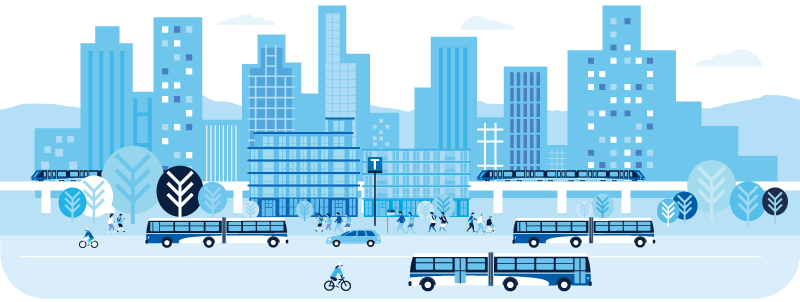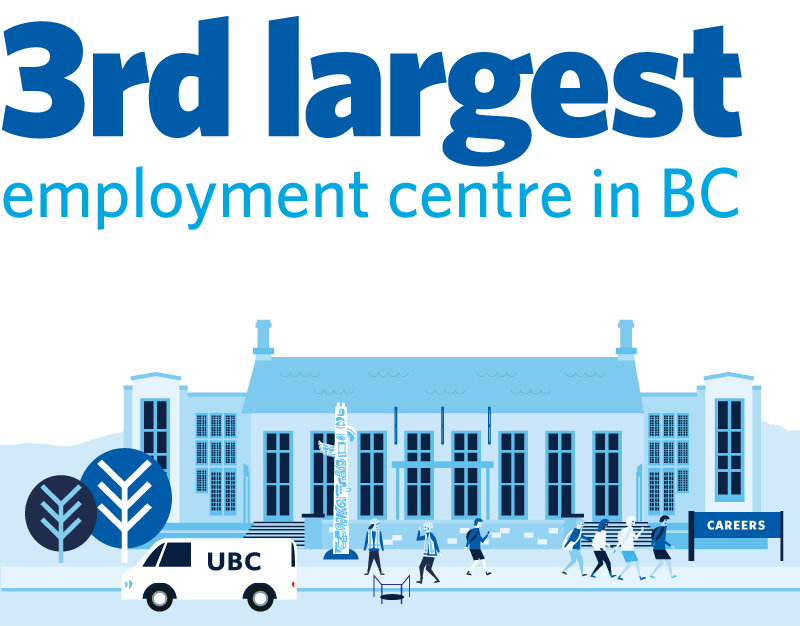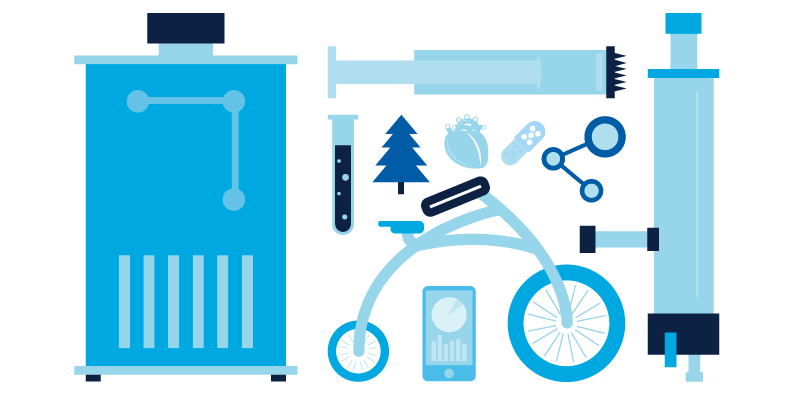A Thriving Regional Economy

Connecting the Region to UBC’s Vibrant Centre of Activity
The 1,000-acre Vancouver campus is a hub of research, teaching and innovation with over 16 million sq. ft. of academic and lab space, a thriving urban area with a daytime population exceeding 80,000 people, and the second largest employment centre in the region without a rapid transit connection.
The extension of SkyTrain to UBC would put more than one million people within a one-hour transit trip of the UBC campus, improving access to education and jobs, connecting employers with skilled and talented employees, and enabling high-value research and project partnerships with local industries and businesses.

UBC is also a destination for everyone living in the region. Survey data shows 45 per cent of Metro Vancouverites have visited UBC’s Vancouver campus. The vast majority of respondents who travelled to campus were not attending classes (just 13% said this was the reason), but rather taking advantage of the nearby parks, beaches (19%), museums or cultural amenities (17%). Others were attending a lecture or speech (16%), visiting a health practitioner (13%) or seeing a performance (12%).
Connectivity Will Drive Economic Growth Throughout the Metro Vancouver Region
UBC is the only research-intensive university in Canada without a rapid transit connection to the region it serves. SkyTrain to UBC is crucial for connecting people, educational institutions, businesses, agencies and organizations across the region that contribute to our economic prosperity and wellbeing.
Connectivity will:
- Enable the exchange of ideas and the transfer of knowledge. Resulting innovation, entrepreneurship and new discoveries can help solve some of the biggest challenges facing the world today.
- Support shared hires, research collaboration and shared use of high-end laboratory equipment. Read about a partnership between Surrey-based NEXE Innovations and researchers at the UBC BioProducts Institute to derive products from renewable resources.
- Facilitate student co-op, internship and work placements, connecting employers with skilled and talented employees. Read about how UBC students doing on-the-job training are contributing to a diverse workforce across Metro Vancouver.

Broadway to UBC
Broadway between UBC and Commercial Dr. is a major economic driver for all of Metro Vancouver and has the potential to bring even more economic value and other benefits to people living in municipalities across the region.
